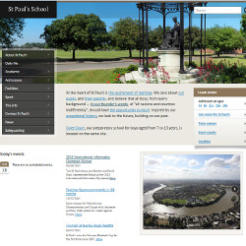A Charity Commission investigation into St Paul's School, a charitable boys school facing historic sex abuse allegations, identified “weaknesses” in safeguarding policy.
But the Commission also found evidence of “good practice” and “extensive safeguarding policies”.
The regulator opened a statutory inquiry into St Paul’s School in June 2014 after the launch of a 2013 police investigation into allegations of historic sex abuse connected to two schools operated by the charity, and three further incidents in 2013.
The Metropolitan Police investigation into the allegations, known as "Operation Windthorpe", attracted national media coverage in 2014 and led to the arrest of three individuals, including teacher Anthony Fuggle - accused of possessing indecent images of children.
The Commission’s investigation revealed “weaknesses” in “the systems for trustees’ oversight of safeguarding policy, including the provision of information to the trustees on complaints received and handled by the charity".
The regulator said these weaknesses had the potential to “inhibit the trustees’ ability to fully discharge their legal duties”.
It also found "inadequate formal documentation of delegated safeguarding duties" which it said could lead to trustees exceeding their "legal authority" or failing to perform "certain functions".
'Trustees acted responsibly'
But the Commission inquiry also found that the charity “periodically reviewed” its safeguarding policies and that the charity’s trustees “acted responsibly” by “taking a number of steps in response to concerns” – including commissioning an independent review team to review the its safeguarding policies, practice and culture.
Michelle Russell, director of investigations monitoring and enforcement at the Charity Commission, said: “Thousands of charities in the UK work with children and young people and provide vital support and services to them. It is essential to public trust and confidence in these charities and their work that they take their responsibilities for the care and wellbeing of children and young people seriously.
“Trustees of schools that work with children and young people have specific legal duties under education law about safeguarding.
"Charity trustees are also under a duty to act prudently, in the best interests of the charity and discharge their duties in accordance with their duty of care.
“This is particularly pertinent in charities that have been subject to allegations or complaints which raise potential safeguarding concerns or risks. In such cases, given the higher risks involved and the sensitivity of such issues, the Commission expects trustees to consider what additional steps are necessary beyond basic compliance with other statutory guidance or regulations to satisfy themselves and the Commission that they are properly discharging their duty of care under charity law.
The Commission said it has provided regulatory advice to the charity to help the trustees to carry out their legal duties.
The charity has implemented an action plan to address the recommendations and the Commission said it will “will continue to monitor the charity’s progress”.
The London-based charity runs St Paul’s School and its preparatory school, Colet Court. It provides education for boys aged from 7 to 18 years.
A spokeswoman for St Paul’s School and Colet Court told Civil Society News: “The Governors of St Paul’s take our duty of care with regard to pupils extremely seriously, and are committed to ensuring that the school provides a safe and positive environment for all its pupils.
“The Charity Commission has concluded that the School has extensive safeguarding policies in place which are regularly reviewed, and that the trustees acted responsibly in taking a number of steps in response to the Charity Commission’s concerns.
"It identified several examples of good practice and also made a number of ‘good practice’ recommendations to assist us in further developing our safeguarding policies and practice. These have all been incorporated into the School's Action Plan, created earlier this year, to implement the recommendations of the independent review we commissioned from Professor Graham Badman CBE.”









